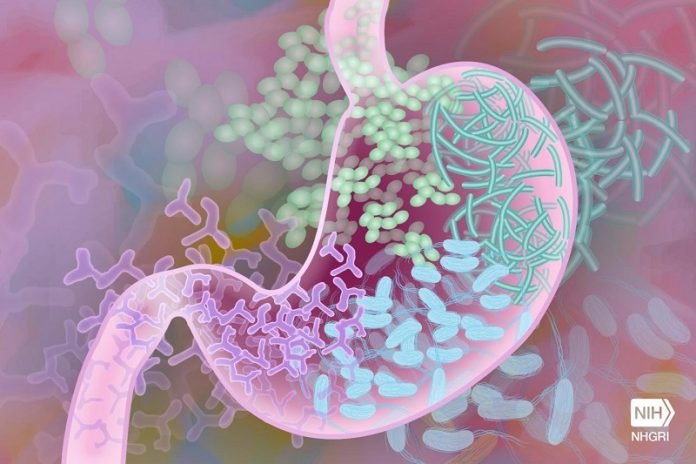
The role of the microbiome in intestinal and systemic health has garnered close attention among researchers for many years.
In a study from UT Southwestern, scientists found that this collection of microorganisms in the human gut can also impact a person’s brain and emotional health.
The team outlines how scientists are unraveling the relationship of the microbiome to the brain, including connections to diseases such as depression and amyotrophic lateral sclerosis (ALS).
Animal studies have found certain gut microbes and related metabolites that increase anxiety-like behavior and brain function.
Translating these findings to clinical populations could lead to novel therapies to improve symptoms and clinical outcomes.
The researchers previously examined how inflammation might influence depression, and in stool samples collected from participants in the longitudinal Texas Resilience Against Depression study.
If the sample from a patient with depression yields certain microbes that are associated with treatment success from certain antidepressants or therapies, this may drive personalized medicine for this patient.
The team says currently people have a host of treatment choices, yet decisions are predominantly based on behavior and self-report, and imaging and EEGs in some cases
Antidepressants typically work for just around 40% of people. Other choices include cognitive behavioral therapy, deep brain stimulation, or even exercise and diet.
By expanding on the individual patient’s profile, maybe they can improve the number of people that respond to a particular treatment.
If you care about gut health, please read studies about major cause of fatty liver disease, leaky gut, and common blood pressure drug that could increase your gut disease risk.
For more information about gut health, please see recent studies that grapes may help boost gut health, reduce blood cholesterol, and results showing how the gut helps drive COVID-19.
The study was conducted by Neuroscientist Jane Foster et al and published in Science.
Copyright © 2022 Knowridge Science Report. All rights reserved.



